.jpg)
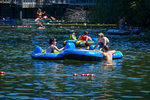
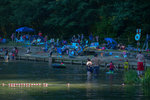
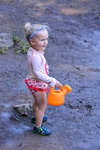
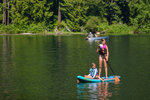
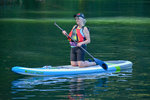
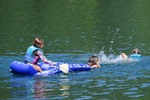
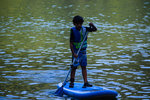
The National Weather Service reported 112 degrees on Sunday in Vancouver, breaking the previous all-time high record of 108 from July 29, 2009.
The unprecedented weather can be attributed to a “heat dome” effect. A large and high-pressure system has been sitting over the Pacific Northwest for several days, said Tyler Kranz, a meteorologist from the NWS in Portland.
“If the weather pattern gets stuck or blocked, it can result in heat waves like this,” Kranz said. “This air mass just keeps heating up more and more, day by day, and it has nowhere to go.”
With the hot weather, crowds swarmed to the Battle Ground Lake State Park to cool off in the water, and many brought their kayaks and paddleboards along on June 26.
The NWS predicted temperatures to reach 115 degrees by Monday afternoon, but temperatures should decrease to a high of 86 degrees by Wednesday, Kranz said.
Portland also broke all-time records with a reported 112 degrees at the Portland International Airport, which beat the August 8, 1981 record of 107.
“It definitely feels strange forecasting temperatures that are so far beyond what’s ever been observed here before,” he said.
The Vancouver and Battle Ground areas are predicted to see cooler temperatures at night, dipping into the upper 50s and lower 60s.
“People will finally start noticing a little relief around sunrise when the morning low occurs,” Kranz said.
A dangerous impact of triple-digit weather includes heat exhaustion and heatstroke, he said.
Heat exhaustion presents itself with symptoms that could include heavy sweating, feeling weak, nausea, muscle cramps and dizziness. The skin appears cold and clammy.
If someone shows heat exhaustion symptoms, move the person to a cooler environment, like a cool bath or an air-conditioned building, Kranz said.
Heatstroke is more severe. If someone shows symptoms, they should seek medical attention immediately, Kranz said. Symptoms include throbbing headache, confusion, nausea, dizziness and the skin appears red and hot.
“People who can't cool off during this event are at higher risk of developing things such as heat exhaustion or even heat stroke,” he said. “The elderly are at greater risk and also infants.”